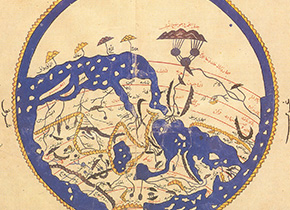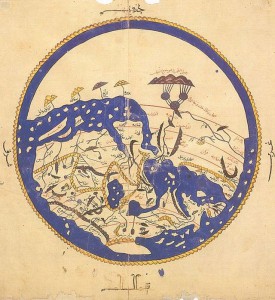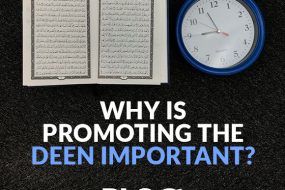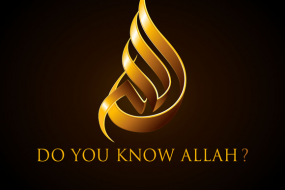
A thousand years ago, the Islamic world was developed to a great extent while European civilizations were busy sinking in backwardness and ignorance. A deeper look into the history of science and civilization reveals that it was Muslim scholars who entrenched most of scientific literature, discoveries and inventions of the world.
In such times, Muslim scholars followed scientific and medicinal ways to operate surgical operations, where Western civilizations followed practices of magic and witchcraft for healing. Around the year 1000 CE, a Muslim doctor by the name of Abu al-Qasim Al-Zahrawi published a 1500 page illustrated encyclopedia of surgery that was used in Europe as a medical reference for the following 500 years. It is good to mention here that many modern surgical instruments are of exactly the same design as those devised by Al-Zahrawi .
Muslims also pioneered in engineering, constructing many useful mechanical instruments, examples can be found with the invention of very accurate clocks in order to establish a more accurate method for the five daily prayer timings, as the clocks developed by Al-Jazari.
Badi’al-Zaman Abū al-‘Izz ibn Ismā’īl ibn al-Razāz al-Jazarī was a Muslim polymath born in what is known today as Cizre, Turkey. He is best known for al-Jāmiʿ bain al-ʿilm wa al-ʿamal al-nāfiʿ fī ṣināʿat al-ḥiyal (The Book of Knowledge of Ingenious Mechanical Devices) written in 1206 CE, where he described over 100 mechanical devices, some 80 of which are trick vessels of various kinds, along with instructions on how to construct them.
Aside from Al-Jazari’s inventions, many sophisticated tools of warfare were designed and developed by other Muslim engineers, owning the first notions of inventing rockets and even war tanks. Muslim engineers were also the first to use secret code formation. Again, it was Al-Jazari who invented the first secret code locks. What was significant during that era was the fact that Muslim scientists and scholars were reliant on methods of scientific documentation, as they used to document references in their books.
But it was after the defeat of Muslims as a global unity which followed the events of the conquest of Baghdad in 1258 CE that has allowed Western powers to simply steel all documentation of scientific discoveries and inventions accomplished by Muslims, and have wiped out the names of original authors, and attributed scientific discoveries and inventions of Muslims to themselves; surely it was the biggest heist in the history of science.
Many well known scientists of that era have taken Muslim discoveries and attributed them to themselves; the easiest way to steal knowledge is for someone to take a book, recopy it word by word, and then delete the name of its original author and place their name instead. And if it was not for the tremendous scientific leap achieved by Muslim scientists, Western civilizations wouldn’t have arise, and the fact that those scientific developments and discoveries came as a direct result of teachings from the Qur’an, continuously urging for seeking knowledge, reflection and discovery, as indicated by Allah – The Exalted- in the verses of chapter Al’Alaq in the Noble Qur’an:
“Read! In the Name of your Lord, Who has created (all that exists) (1) Has created man from a clot (a piece of thick coagulated blood) (2) Read! And your Lord is the Most Generous (3) Who has taught (the writing) by the pen (4) Has taught man that which he knew not (5)”
It was also narrated by Abu Huraira (Allah be pleased with him) that Allah’s Messenger (ﷺ) said:
“When a man dies, his acts come to an end, but three, recurring charity, or knowledge (by which people) benefit, or a pious son, who prays for him (for the deceased).”
Islam was and still is a great source of inspiration, devotion and motivation to persevere in all kinds of knowledge, which is why we can always find great examples of role models in science within the nation of Islam which served not only their brothers and sisters from within the one nation, but the whole world put together.
Another great example that served this world with his findings is a scientist and mathematician called Muhammad ibn Musa Al-Khawarizmi, who lived in Persia and Iraq between the years 780 to 850 CE. Al-Khawarizmi developed the mathematical system of algebra. And while many secondary school students around the world struggle through math classes may not particularly appreciate the importance of algebra, it is still one of the most important contributions of the Muslim Golden Age to the modern world.
All of Al-Khawarizimi’s books were translated into Latin in Europe in the 1000s and 1100s, where he was known as Algoritmi (the word algorithm is based on his name and his mathematical works). Without his work in developing algebra, modern practical applications of math, such as engineering, would not be possible. His works were used as math textbooks in European universities for hundreds of years after his death.
Speaking of universities, that is also an institutional achievement made possible by Muslims. Early in Islamic history, mosques doubled as schools. The same people who led prayers would teach groups of students Islamic sciences such as Qur’an, fiqh (jurisprudence), and hadith. As the Muslim world grew larger, the need for formal institutions, known as madrasas, was required to be dedicated to the education of students.
The first formal madrasa was al-Karaouine, it was founded in 859 CE by Fatima al-Fihri in Fes, Morocco. Her school attracted some of the leading scholars of North Africa. In this madrasa, students were taught by teachers for a number of years in a variety of subjects ranging from secular to religious sciences. At the end of the program, if the teachers find their students qualified, they would grant them a certificate known as ijaza, which recognized that the student understood the material and is now qualified to teach it.
These first degree-granting educational institutes quickly spread throughout the Muslim world. For instance, Al-Azhar University was founded in Cairo in 970 CE, and in the 1000s, the Seljuks established dozens of madrasas throughout the Middle East. The concept of institutes that granted certificates of completion (degrees) spread into Europe through Muslim Spain, where European students would travel to study. The Universities of Bologna in Italy and Oxford in England were founded in the 11th and 12th centuries and continued the Muslim tradition of granting degrees to students who deserved them, and using it as a judge of a person’s qualifications in a particular subject.
That was then, and in today’s technologically advanced movements, it is hard to imagine the world without photography. Billion dollar companies like Instagram and Canon are based on the idea of capturing light from different scenic views, creating an image from it, and then reproducing that image. But doing so would have never been possible without the revolutionary work of the 11th century Muslim scientist, Ibn al-Haytham, who developed the field of optics and described how the first cameras work.
Ibn al-Haytham discoveries regarding cameras and how to project and capture images led to the modern development of cameras around the same concepts. Without his fact-findings into how light travels through slots and is projected by them, the modern mechanisms inside everyone’s cameras would not exist.
With a little bit of research in the history of science throughout the previous thousand years, we will also find a long list of Muslim scholars who were pioneers in almost every aspect of knowledge, from astronomy and astrophysics, to biology, neurosciences, psychology, chemistry, economy and social sciences, geography and earth sciences, mathematics, physics and engineering. All such Muslim scientific achievements were for the sake of Allah, to benefit the Muslim nation with knowledge fruits and to establish the superiority of the message held in the hearts of all Muslims.

But regardless of how much knowledge Muslim scientists kept acquiring, they acknowledged the favors of Allah that were bestowed upon them, and thus stayed humble and submissive to the All-mighty Who facilitated the paths of their knowledge, as indicated in Chapter Fatir, verse 28:
“…Only those fear Allah , from among His servants, who have knowledge. Indeed, Allah is Exalted in Might and Forgiving.”
Of course, the culture of self-confidence in Islamic civilizations has been suffering for the past few hundred years, due to the fact that Western civilizations are not ready to openly admit the gratitude to the great Muslim scientific achievements throughout the span of history. Until this day, many Muslims feel an inferiority complex and tardiness against Western civilizations, and it’s due to not knowing or acknowledging their Muslim forefathers achievements, as well as not realizing that today’s Western civilizations constant growth in the fields of optics, medicine, time measurements and much more, would not have been possible if it was not for the achievements of Muslim scientists.
Mentioning the previous few examples is not for us to be mournful about what happened to the Muslim Golden Age, but it is to learn from history, as it has always taught many others before us. Western civilizations built their technological, cultural and social development on many of the Muslim world discoveries and inventions, and regardless to how they acquired such knowledge, they were able to take the charge of global initiatives and benefit greatly from scientific findings.
In today’s world, we can see unlimited technological discoveries and constant progresses used for the wrong purposes and goals, as Muslims it is our responsibility to learn, develop and hire such advanced progresses to be used for the sake of Allah, and strive harder to benefit the Muslim nation and the generations to come.








9 replies on “The Biggest Heist in the History of Science”
Barakaa Allah feek. All these posts have been so beneficial and inspiring. I make sure to share the knowledge with my children. Jazakum Allah khairan. Ameen
All praise be to Allah for the blessing of Isam
Subhaanallah. Islam is also for knowledge and science.
Jazakallahu khairan.
Jazaka Allahu Khairan for such an insightful and inspiring article. I have one question though:
It was also narrated by Abu Huraira (Allah be pleased with him) that Allah’s Messenger (ﷺ) said:
“When a man dies, his acts come to an end, but three, recurring charity, or knowledge (by which people) benefit, or a pious son, who prays for him (for the deceased).”
Does this quote above include daughters that would pray for their parents, not only their sons?
Jazakalloh khoir. This article will encourage muslims to retake their victorious in scientific field. I ask permission to ttanslate it into Bahasa and share it through our monthly islamic magazine.
Wa khairan Jazaak for taking the time to read it brother.
Permission granted, and kindly mention the Islamic Online university blog as a reference :-).
Jazaaka Allahu khairan.
Sure we will mention its original resources IOU blog and the author.
Indeed true. I have a large collection of the contribution of Muslims scientists during the Golden Age, under the title; ‘what is taught / what should be taught.’ It is sad how the Muslims today are a mere shadow of their former glory and so fallen. Pakistan today is a front ranking Muslim state in science & technology and under severe pressure from those who lead it. May Allah revive the Muslims again. Ameen.